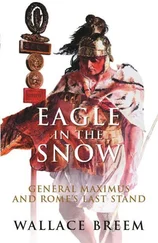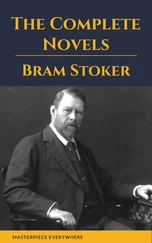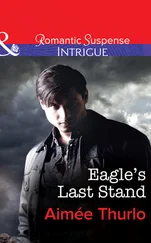I said, “You know a lot about soldiers.”
He smiled. “Why not? Did you know that one of my predecessors in office was once a centurion in a legion at Moguntiacum? We live in the world more than you think.”
I was silent. Quintus said roughly, “Yes, we are going to fight. We have waited long enough for help that has never come.”
I glanced at him sharply. The Bishop said, “It is a fine thing that you are such good friends.” He regarded us keenly. He said, “I am glad that this city has two such men as you to protect it. I did not always think so. This city and this province have great need of men like yourselves; men who have confidence and authority and right judgement; men who are sure; men who know themselves.”
I shut my eyes suddenly. I said, “You are very kind.” I thought of Julian, and of my wife. I thought of the girl in the camp at Moguntiacum and of the times I had wiped the blood off my sword after a battle or a fight. I said, “But you are so very wrong. Do not have too much confidence in us, my lord Bishop.”
He said, “Do not misunderstand me. As I said, I have been in the world. I can tell a good sword from a bad one. And I know just how a sword is made. If you ever need me I shall be here. You need never feel alone.”
I stared out over the window ledges, saw the helmets of my soldiers in the courtyard below, smelt the smell of food cooking in the kitchens and heard a girl laugh as she strolled through the arcade behind my back, holding hands with a young man, no doubt. In the distance a skein of geese passed silently across the face of the rising moon.
With the auxiliaries manning all the forts from Confluentes to Borbetomagus, the cohorts marched out by night, carrying full equipment, twenty days’ rations and the hopes and fears of their commanders. To muffle undue noise the cooking pots, spades and entrenching tools had been wrapped in rags and the only sound was the quiet jingling of a horse’s bit and the steady tramp of nailed sandals. The men had been forbidden to sing, as they normally did, but they marched cheerfully and in good spirits at the thought of the coming battle. After an hour, riding at the rear of the column I could smell again the familiar smell of horses, sweat and leather and began to feel more cheerful.
Eight days later the legion crossed the river, again by night, and before dawn marched ten miles into the heart of the territory, formerly Marcomir’s, now held by Goar. We camped near his berg while the men rested during the hours of daylight and troops of cavalry rode forward to make contact with Goar’s scouts who were guarding the foothills north of the plain where the enemy lay. That night we marched again and the second dawn found us drawn up for battle, six hundred yards from the enemy camp. The centre, under the command of Fabianus, consisted of the three heavy cohorts, with their ballistae and carroballistae, grouped in the gaps between the massed units. Guarding their flanks were two light cohorts, extended slightly forward at an angle to suggest that they were the wings of my formation. Slightly to the rear of these wings, but outflanking them, and hidden on the one hand by a copse and on the other by thick scrub, were two alae of horse, their men dismounted for additional concealment. As a reserve, under my own hand, I had a third ala, the third cohort of light infantry, and my bodyguard. To left and right of the legion were Goar’s Alans, mixed with a stiffening of auxiliaries. Behind us, as an additional reserve were Marcomir’s Frank’s—what was left of them. Each cohort was divided into ten sixty-man waves and the men sat upon the ground and rested while scouts rode up and down the line, checking that all was as it should be.
For an hour nothing happened. The enemy lined the palisade and watched us; but they would not move. To goad them into action I moved the artillery forward, protected by a screen of light troops, and began to bombard the camp. This had the desired effect and after half an hour a great body of men, the Alans of Respendial, moved out in bands under their leaders and came towards us. I signalled the artillery to withdraw and it did so, the men panting and sweating as they strained to pull the ballistae back into the safety of their own ranks. Seeing this the enemy, who had been moving forward steadily, broke into a run. When they were two hundred yards away the front rank of the cohorts moved out at the double and threw their javelins from a range of fifty feet. One flight of javelins was followed by another and another as each row hurled its weapons in turn. The javelin shower tore great gaps in the enemy and checked their rush for a moment. Then there was the most appalling crash of steel upon steel, of iron upon iron, all mixed up with the cries of men shouting, as the two sides closed in hand to hand fighting. The tribesmen hacked and swung with their longer swords, their axes and their spears; but the legionaries, their shields close to their bodies, contented themselves with quick underhand thrusts of their short swords, aiming always for the stomach or the chest, never for the head or the shoulders. “Three inches in the right place,” I used to say to them, “and he is a dead or a dying man. But give him six inches in the wrong place, and he will kill you before you have time to give the second blow.” The close fighting went on for ten or twelve minutes, and then a second wave of the cohorts moved forward to take the place of their now rapidly tiring comrades. Our line held; the Alans could not break it and they fell back a little to recover their breath while, in their turn, others took their place. They tried twice more but still failed to break the centre. So many were the enemy that they could not all get into the fighting line at once; so those in the rear spread out and began to assault my two wings, whose archers did terrible damage. When the whole line was engaged and I could see that they had no true reserves left I ordered the trumpeter to sound, and the auxiliaries and Alans under Goar swept round and took the enemy in both flanks. The shock was too much for them. The enemy wavered, tried to hold their ground, wavered again and then broke in flight back towards their camp. The trumpet sounded again and the auxiliary ala broke from the scrub where Quintus had them concealed and struck diagonally at the retreating enemy. In four minutes it was all over. Less than a third of the Alans got back to the safety of the palisades.
In the lull that followed I held a conference with my staff; the wounded were taken to the rear where the waggons stood waiting, and the ranks reformed themselves. Groups of our soldiers went out to recover all the weapons that lay within three hundred yards of our position, and to kill the enemy wounded who lay upon the ground. The men were allowed to fall out, section by section, to eat and drink; the various units re-grouped and the gaps in the ranks closed up. Archers ran up with bundles of fresh arrows, while centurions cried out for more spears and javelins.
A little before midday the enemy began to mass again along the edge of their shattered palisade but, as before, they made no move to come out. To encourage them I had the advance sounded and moved my whole battle line forward three hundred yards. Then I pushed out a line of archers and when they were within range ordered them to open fire. “Watch the wind,” I cried, for I could see the arrows fading to the left as they dropped towards the palisade. The ballistae opened fire and the sky was filled with fireballs. Soon the whole length of the palisade, for half a mile, was covered with points of flame and a pall of smoke hung over the camp as the scrub caught fire. Had the wind been in the right direction we could have smoked them out, but it was blowing gently from the southwest. After half an hour they could stand it no longer; and I could see the sun flicker on the points of swords and spears as, suddenly, a great mass of men moved out of the smoke towards us at a fast walk. Their line extended from the river to well past our left flank and must have been twenty deep at least. In front, with their standards beside them, were the war chiefs of the tribes and, as they came closer, I could recognise Respendial, Hermeric, Gunderic and Sunno, who had succeeded Rando as king of the Alemanni. There must have been twenty-five thousand men on the move and I knew that we could not hold them once they closed the fight; they would destroy us by sheer weight of numbers.
Читать дальше












